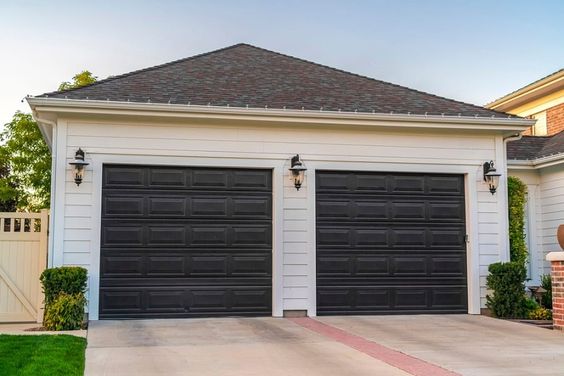Dealing with a malfunctioning garage door opener remote control was an unexpected and aggravating experience I recently faced. It’s incredible how much we rely on the convenience of a simple button press to open and close our garage doors, and when that convenience is suddenly taken away, it can throw a wrench into your daily routine.

Going through this ordeal myself, I gained valuable insights into the common issues that can plague remote controls, learned how to troubleshoot effectively, and discovered solutions to restore the smooth functioning of my remote control by following Garage Door Repair.
Unveiling the Frustrating Remote Control Woes:
At first, the notion that my garage door opener remote control could be the source of the problem seemed almost too simple. However, I quickly learned that remote controls are more complex than they appear:
- Battery Troubles: The most common issue, and sometimes the easiest to overlook, is depleted or weak batteries in the remote control.
- Signal Interference: Radio frequency signals that remote controls use can be disrupted by various electronic devices, causing them to fail.
- Physical Damage: Dropping the remote, exposing it to moisture, or general wear and tear can lead to internal damage, resulting in unresponsiveness.
- Programming Glitches: Sometimes, the connection between the remote control and the opener can get lost or unprogrammed, causing communication breakdown.
Navigating Through Troubleshooting:
The key to tackling a malfunctioning remote control is to troubleshoot methodically, ruling out each potential issue one by one:
- Battery Power Check: Always begin with the simplest step – checking the batteries. Swapping out old batteries for new ones is often the solution.
- Inspection for Damage: Examining the remote control for visible damage such as cracks or signs of moisture can give you an idea of whether physical damage is the culprit.
- Test Multiple Remotes: If you have more than one remote control for your garage door opener, test them all. If only one remote is problematic, chances are it’s specific to that remote.
- Adjusting Proximity: Moving closer to the garage door opener can sometimes help. Signal strength can be affected by distance, so testing from various points can be revealing.
- Eliminating Interference: Temporarily turning off other electronic devices that could be causing signal interference – like cordless phones or Wi-Fi routers – can help diagnose signal-related issues.
- Reprogramming the Remote: If none of the above steps work, reprogramming the remote control might be the solution. Check your opener’s manual for guidance on reprogramming.
Effective Solutions for Remote Control Woes:
- Battery Replacement: The simplest and most crucial step is regular battery replacement. Making it a habit to change batteries at least annually, regardless of remote performance, can prevent many issues.
- Managing Signal Interference: Being mindful of where you use your remote control can help minimize signal interference. Keeping distance from other electronic devices is a good practice.
- Taking Care of the Remote: Treat your remote control with care. Avoid exposing it to moisture and consider using a protective case to prolong its lifespan.
- Replacement Consideration: When a remote control is beyond repair or consistently malfunctions, investing in a new remote control is a practical solution. Ensure compatibility with your opener model.
- Seeking Professional Assistance: For programming challenges or uncertainty about any troubleshooting steps, consulting a garage door technician is a smart move.
When Professional Help Is a Must:
While many remote control issues can be resolved through troubleshooting, some situations warrant professional intervention:
- Complex Programming Concerns: If reprogramming your remote control proves challenging, don’t hesitate to let a professional handle the task accurately.
- Internal Damage Suspicions: If you suspect internal damage to your remote control, attempting DIY repair might exacerbate the problem. Seek professional assessment for repair or replacement advice.
Preventing Future Remote Control Dilemmas:
To avoid future remote control troubles, consider these preventative measures:
- Regular Battery Checks: Set reminders for regular battery replacements to ensure your remote control always has adequate power.
- Signal Testing: Test your remote control from different distances periodically to ensure consistent signal strength.
- Signal Interference Audit: Identify potential sources of signal interference around your garage door opener and take steps to minimize them.
- Remote Control TLC: Treat your remote control gently to avoid damage from drops or moisture exposure.
In summary, as per Garage Door Repair, dealing with a remote control that’s on the fritz can be incredibly frustrating, but with a strategic approach to troubleshooting and the provided solutions, many common issues can be addressed. Always prioritize safety and accuracy, and if you’re uncertain about any steps, don’t hesitate to seek professional assistance. By adopting preventative measures and ensuring proper maintenance, you’ll not only resolve current remote control problems but also enjoy seamless access to your garage for years to come. The convenience and peace of mind that come with a properly functioning remote control are well worth the effort.
Denzel Garage Door Repair of Lake Worth
3469 S Congress Ave #29, Lake Worth, FL 33461, United States
561-264-5078
